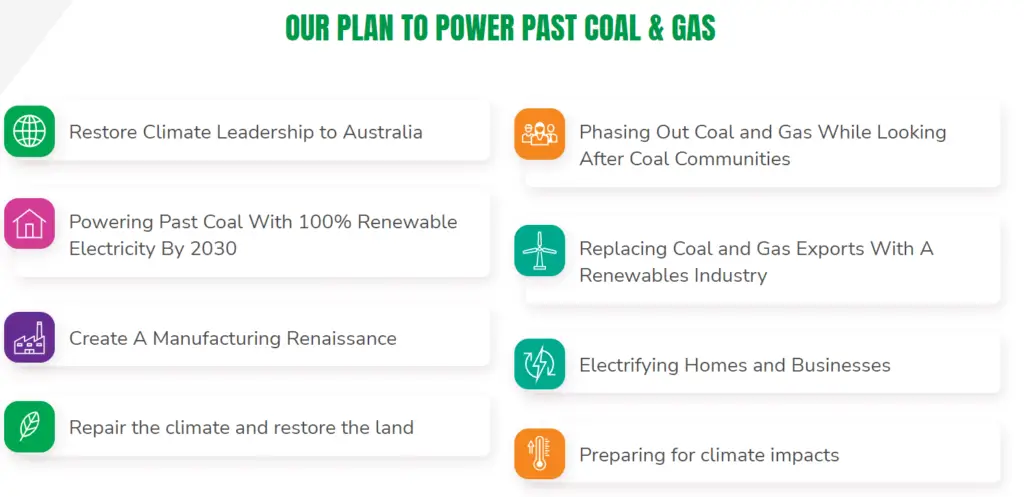How to vote climate
- 2022 Australian election and Senate voting

There are a lot of parties on the senate ballot sheet and it takes a bit of effort to understand what each party stands for. In this blog post, you will find a summary of each party on the Senate ballot, their position on climate change and I rank them all, based on their climate change policies alone. To vote climate I will be voting above the line and mostly likely number 8 parties that I know support strong action on climate change. I will be voting Greens first followed by some minor parties before Labor is numbered in 8th position. I don’t plan to number the Liberal party.
Here are the questions you will find answers to in this post:
* What do I need to know about the Senate?
* Should I vote below or above the line?
* How many parties/ candidates should I number?
* Who should I vote for?
* What about voting in other states and territories?
* What is the climate change policy of all the parties on the ballot
* Should I vote below or above the line?
* How many parties/ candidates should I number?
* Who should I vote for?
* What about voting in other states and territories?
* What is the climate change policy of all the parties on the ballot
This is all focused on voting for senators in the 2022 Australian Federal election. If you want information on voting for the House of Representatives, check out my blog post How to Vote Climate – ensuring a change of government in the 2022 Australian elections.
What do I need to know about the Senate?
I’ve covered the basics about how voting for the Senate works in the post Understanding How Your Vote Counts. Check it out if you are interested.
But here’s a quick summary of some key points:
- The Senate is often referred to as “the house of review” – it is the place where legislation is often reviewed and amended before it can be passed into law by the House of Representatives.
- Senators represent their states. All states are equally represented in the Senate regardless of their size or population. Territories are also represented, but with a smaller number of senators.
- Senators serve 6 years so only half the senators are up for election at each Federal election (except for those representing territories, who are up for election every 3 years)
- In this election, there are 6 seats to fill in each state and 2 in each territory
- Everyone in the state votes on the same group of people
- The ballot paper can get pretty large because you have the chance to vote for all parties that want a seat in the Senate.
- You need to choose to vote above or below the line
Should I vote below the line or above the line?
There are two options available on the Senate ballot paper – to vote above or below the line. The ballot looks something like this:

Above the line, you are ranking the parties and below the line, you will be ranking the candidates in those parties. You have to choose which way you are going to fill out the ballot (it’s one or the other).
Griffth University advises in this video to vote below the line: https://www.youtube.com/watch?v=whMq5DMMPss
However, this video from The Guardian explains why voting below the line is not as important anymore: https://www.youtube.com/watch?v=NEfZ_iWnoRA
After watching these and reading how votes are counted in the Senate (its all very complicated!), I’ve come to this conclusion:
- Vote below the line if you have strong opinions about individual senators on the ballot and if there is a party that you like, but within that party, there is an individual that you don’t want to see in parliament (you then have the choice NOT to number them, indicating you don’t want to see them in parliament)
- Vote above the line if you don’t care about which individual within the party gets the seat
Like most Australians, I will be voting above the line – I see no real need to vote below the line because I have no strong opinions about the individuals themselves – I just care about which parties are represented in the Senate.
How many parties/ candidates should I number?
You must number at least 6 parties if you are voting above the line and 12 candidates if you are voting below the line.
Should you number more than the minimum amount?
Well, to be honest, I could not come to a clear conclusion on this. My attempts to understand how preferences are distributed, how voting above or below the line plays into that and at what point preferences get exhausted, left me confused.
Here’s the best video I could find that summarises how votes are counted in the Senate: https://www.youtube.com/watch?v=rTamidDoG6g
There are 6 Senate seats in each state and 2 in each territory. You could stick to the minimum and that should be okay. Really.
As for me, because of some wacky rabbit hole I fell into when typing this all up, I’ve since formed an opinion on each of the minor parties out there and I may just number more than 6.
Who should I vote for?
Well, of course, I can’t answer that for you. But I can tell you what I will be doing.
Similar to my voting position for the House of Representatives, I will be voting primarily on the issue of climate action. My justification for this is explained in the blog post How to Vote Climate in the 2022 Australian Election.
In NSW there are no less than 24 groups to consider in the Senate. Initially, I thought, there is no way I’m going to be bothered to check them all out. And then I looked up one. And then another. And then I couldn’t stop.
I realised the way I used to vote can’t wash anymore – you see, after numbering the major parties, I would just number the others based on the party name. Citizens Party? Of course, power to the citizens! Great Australian Party? Sure, that sounds great!
Yeah, not the best way to vote. Because I end up preferencing parties that go against what I believe in.
While the likelihood of these smaller parties getting a seat in the Senate is very very small, I still don’t want to be supporting parties that have values that go against my own.
So yes, I ended up looking up all the parties on the NSW senate ballot.
Below is a summary of the parties that support action on climate, those that have no stated position and those that have a weak position on climate action.
Parties I will be voting for based on their plans for climate action, ranked in the order I will be numbering them on the ballot (although to be honest, I will stop numbering after 8):
- Greens
- Australia Democrats
- TNL (The New Liberals)
- Fusion
- Sustainable Australia
- Socialist Alliance
- Democratic Alliance
- Labor
- Reason
- Australian Values
- Medical Options
- Team Baz Party
- Animal Justice
- Liberals
No stated position on climate action – I most likely won’t number these parties:
- Federal ICAC Now
- Legalise Cannabis
- Seniors United
- Indigenous Aboriginal
Parties that oppose climate action or have very weak climate action policies – I will not be numbering these parties at all:
- One Nation
- United Australia
- LDP (The Liberal Democrats)
- Great Australia
- Citizens Party
- Morgan C Jonas
- Shooters, fishers and farmers
There were other “ungrouped” candidates on the NSW senate ballot however I did not look them up. These candidates are listed here: https://en.wikipedia.org/wiki/Candidates_of_the_2022_Australian_federal_election#New_South_Wales_2
What about voting in other states and territories?
While the list above is focused on NSW, it covers a lot of the parties that will be on the Senate ballot for other states as well. For a list of parties and candidates running in the other states, check out https://en.wikipedia.org/wiki/Candidates_of_the_2022_Australian_federal_election#Senate
Of course, differences do exist between states and territories. The independents running for Senate will differ from state to state.
I would go slightly insane if I started to look all of them up (I am surprised I went as far as I did with the NSW senate parties!) but there is something I want to note – there are three independent senators that are supported by Climate 200, so no doubt they support strong action on climate change. These senators are:
- David Pocock, ACT Senate, https://www.davidpocock.com.au/
- Kim Rubenstein, ACT Senate, https://www.kimrubenstein.com.au/
- Leanne Minshull, TAS Senate https://www.thelocalparty.net/leanne
Something to keep in mind if you are in the ACT or TAS.
What is the climate change policy of all the parties in the election?
So here’s a list of all the parties mentioned above, with a summary of their overall position/ what they represent and a couple of key points from their environmental policy, if they have one. All words are direct quotes from their websites as noted below, except for my own short “notes” which offer some clarification.
I don’t know how I ended up down this path but once I started I just couldn’t stop.
Those that support strong action on climate change:
Greens
- Greens believe: By making billionaires and big corporations pay their fair share of tax – we can tackle the climate crisis and economic inequality, and create a better life for all.
- Note: There is a lot in their climate policy. It boils down to a plan to reach net-zero by 2030 by implementing several measures, outlined on this page: https://greens.org.au/beyond-coal-gas. Here’s a visual summary from this webpage:

Their fully costed plan can be found here: https://greens.org.au/sites/default/files/2022-04/Greens-2022-Plan–Powering-Past-Coal-and-Gas.pdf
Australia Democrats
We promise to accept the scientific method as the best tool to understand the world around us, and to determine positions and act according to evidence, merit and best practice, not partisan ideology nor vested interest.
- Declare a climate emergency
- Commit to reducing emissions by at least 55% by 2030 and develop pathways for this and for net-zero emissions by 2050
- Break it down: target sectors with the biggest emission footprints – electricity, stationary energy, transport and agriculture
- Price carbon for a carbon-constrained world, starting at $30/tonne, to be increased in line with key trading partners
TNL (The New Liberals)
- This is taken from https://en.wikipedia.org/wiki/TNL_(political_party): The party is underpinned by its Constitution and its Charter of Core Values, the latter of which outlines what the party believes to be the basic needs of human beings and includes basing Australia’s economic development on policies of incentive, establishing a simple and just tax system, and understanding that education is the bedrock of a great society and to guarantee the liberty of all
- The New Liberals believe that we are in a climate emergency, and the World must reach net zero emissions by 2030. To delay any further will risk the very existence of our planet.
- Note: Review their core values to ensure it aligns with your own https://tnl.net.au/charter-of-core-values/
Fusion
- A merger of the Science Party, Pirate Party, Secular Party, Vote Planet, and Climate Change Justice Party.
- Fighting the dystopia, corruption, and economic inequity of today’s politics, we bring our specialist focuses of the climate emergency, unlocking the future, free culture, and secular humanism to the fore
- Declare an emergency with a Climate Emergency and Mobilisation act
- Place a material price on carbon emissions, and remove all subsidies from greenhouse intensive practices and vehicles.
Sustainable Australia
- Sustainable Australia Party is an independent community movement, with a positive plan for an economically, environmentally and socially sustainable Australia. We believe in a science and evidence-based approach to policy – not a left or right wing ideology.
- Use a broader Genuine Progress Indicator (GPI) as a key measure of Australia’s progress that redefines ‘growth’ and prioritises growth in good things, including health and wellbeing, not growth in bad things like consumption and population as encouraged by the current ‘GDP’ measure (see Economy)
- Enshrine into Australian law the fundamental human right of a healthy natural environment for its citizens and prioritise this in all policy and development decisions (see Environment)
- Act on climate change and contribute to staying below 1.5 degrees global temperature rise compared to pre-industrial levels (see Environment)
- Note: This party was once focused on sustainable property development and population control. Population control is still a part of its policies, but the party is not anti-immigration or for coercive control measures. They just want a limit on population growth.
Socialist Alliance
- We work to empower people, putting communities and pro-people alliances first, while opposing rich and powerful vested interests.
- Government must commit to rapidly cutting greenhouse gas emissions by shifting to 100% renewable energy and phasing out fossil fuel use, mining and exports. This shift should be carried out within 5-10 years via public investment and emission reduction targets with power industries and the banks placed under public ownership and democratic control to enable the processes
- Note: Check if socialism in Australia is something you would want to support by checking out their page https://socialist-alliance.org/documents/towards-socialist-australia
Democratic Alliance
- The party’s policies include promoting a pro-Taiwan foreign policy, protecting human rights, establishing a federal anti-corruption agency, building a green economy, and supporting workplace democracy. https://en.wikipedia.org/wiki/Drew_Pavlou_Democratic_Alliance
- Build Solar Here
- Build Batteries Here
- Build Electric Vehicles Here
- Get To Net Zero While Creating Millions of New, Stable, Long Term Jobs
- Invest in Mining and Refining Rare Earth Minerals
- Invest in Green Manufacturing and Green Steel
- Invest in High Speed Rail
- Note: Party has strong anti-China stance, which seems to be its focus
Labor
- Alongside the economic benefits, our plan will reduce Australia’s emissions by 43% by 2030 – which will become Australia’s target under the Paris Agreement, keeping us on track for net zero by 2050.
- Upgrade the electricity grid to fix energy transmission and drive down power prices.
- Make electric vehicles cheaper with an electric car discount and Australia’s first National Electric Vehicle Strategy.
- Adopt the Business Council of Australia’s recommendation for facilities already covered by the Government’s Safeguard Mechanism that emissions be reduced gradually and predictably over time, to support international competitiveness and economic growth – consistent with industry’s own commitment to net zero by 2050.
- Protect the competitiveness of Emissions Intensive Trade Exposed industries by ensuring they will not face a greater constraint than their competitors.
- Allocate up to $3 billion from Labor’s National Reconstruction Fund to invest in green metals (steel, alumina and aluminium); clean energy component manufacturing; hydrogen electrolysers and fuel switching; agricultural methane reduction and waste reduction.
- Plus many other policies
- Their full costed plan can be found here: https://keystone-alp.s3-ap-southeast-2.amazonaws.com/prod/61a966013f3c53001f975016-REPUTEX_The%20economic%20impact%20of%20the%20ALP’s%20Powering%20Australia%20Plan_Summary%20Report.pdf
Reason
- Reason stands for: The decriminalisation of all drugs and the legalisation of Cannabis, Getting Religion out of Politics, Equality and Freedom for All, Urgent Action on Climate Change, Reconciliation Now with Indigenous Australia, Equal Rights for Women and LGBTIQ Australians, A Fairer Justice System & Prisoner Rights. Education reform including comprehensive Sex Education in all Australian Schools, A Compassionate Immigration System, Red Tape Reduction for Small Business
- https://www.reason.org.au/climate_environment
- Reason believes we need a job focused solutions to achieve net-zero before 2050. We need massive investments in renewable energy, incentives for transitioning to electric vehicles and reducing our reliance on dirty old coal.
- Environmental policy should be a cabinet position that sits to the right hand of the Prime Minister and Premiers, not six seats to the left and closest to the exit.
- Note: This party brings together the Australian Sex Party and Voluntary Euthanasia Party
Australian Values
- The purpose of AVP is to bring balance into Australian politics by creating a government that is responsible and accountable to the Australian people. A government that will promote the welfare of all people and protect what Australians value.
- The AVP Policy approach will focus to off-set emissions and improve practices to achieve a scalable sustainable climate strategy that also safeguards our future generation with the capabilities and conditions they need to thrive. Our focus must be expanded to facilitate greater pollution reduction (not just carbon) including capture and conversion initiatives through the close integration of this policy with our Energy innovations and continued expansion through collaboration, not competition, within this.
- Note: Party has a focus on veteran affairs
Medical Options
- We stand for full informed consent, truth and transparency. We advocate for freedom of choice; and we aim to always represent the will of the people.
- Invest in ethical energy and living. Reduce pollution.
- Scrutinise impacts of mining and fracking on the environment.
Team Baz Party
- A healthy and functioning democracy by considering each piece of legislation through seven pillars: sustainability, commerce, culture, education, health cohesion and transparency
- Sustainability is meeting our needs without compromising the ability of future generations to meet their needs.
- Sustainability has three pillars: economic, environmental and social or, simply, profits, planet, and people.
- For me to support a piece of legislation, it must be clear in the constitution of that legislation that there is a serious commitment to sustainability.
- Note: Party is made up of Baz Du Bois, a master builder from western Sydney and TV personality wanting to run to represent everyday Australians.
Animal Justice
- The Animal Justice Party gives a political voice to those who have none – we pursue the vital issues of animal protection through the Australian Parliamentary System
- It is an AJP priority that urgent action be taken to address global climate destabilisation. Animal agriculture plays a major role as a cause of climate change, so a switch to a plant based diet would be a significant help in avoiding it.
Liberals
- Net zero emissions by 2050
- We are also making carefully considered and targeted investments in transmission projects to support new renewables coming online – including investing a further $84 million in microgrids for remote communities.
- We are safeguarding our wildlife for future generations by investing $6 billion for threatened species, habitat restoration, marine conservation and environmental projects – including funding $74 million dedicated to koala recovery and conservation.
- https://www.liberal.org.au/our-plan/energy
- To fill the gap created by the closure of the Liddell Power Station in 2023, the Government is investing up to $600 million in building a new gas-fired power station – to be built by Snowy Hydro Limited – in the Hunter Valley.
- The Government has outlined its technology led plan to lower emissions, lower costs and support jobs. This includes clean hydrogen, electricity storage, low emissions steel and aluminium production, carbon capture and storage and soil carbon sequestration.
- In the recent Budget, we made further investments in microgrids to support regional and remote communities with small-scale renewable energy projects like solar and batteries.
- This decade, the Government will invest more than $22 billion in low emissions technologies, driving over $88 billion of total investment to reduce emissions while growing the economy and creating jobs across Australia.
No stated position on climate action:
Federal ICAC Now
- Federal ICAC Now (FIN) is a non-aligned, anti-corruption political party.
- We are against corruption wherever it may be and no matter who started it. We want a properly funded and empowered Independent Commission Against Corruption to expose it and stop it.
- They have no stated policy on climate action as a Federal ICAC is their sole focus.
Legalise Cannabis
- We advocate for positive policy reform relating to cannabis for both health and personal users.
- No policy on the environment as it is a single-issue party
Seniors United
- For a fairer deal for Seniors, Veterans & the Disabled in Health, Care, Income and Housing
- There is no stated position on the environment as they are single-issue party
Indigenous Aboriginal
- Our GOAL is to have more First Nation voices HEARD in Government. Our VISION is to break down the barriers of communication and increase understanding of Indigenous issues in this country.
- There is no stated position on the environment as they are single-issue party
Opposed to climate action or weak climate action policies:
One Nation
- We are a party that stands for Australia and Australian values. We defend our constitution and stand up against global agendas for the individual rights and fundamental freedoms of all Australians.
- The team at One Nation puts people before politics and we will continue to fight for Australia and its citizens.
- One Nation believes Australia should withdraw from the United Nations Paris Agreement signed in 2016.
- Australia has committed to the deepest and most savage carbon emission cuts in the world on a per person basis. This commitment is predicted to slow the Australian economy with enormous job losses. In our view, this economic suicide cannot be justified on the evidence put forward by the United Nations Intergovernmental Panel on Climate Change (IPCC).
- We know that the majority of people believe in man-made global warming caused by carbon dioxide and other greenhouse gases. This belief is reinforced by media coverage of events like forest fires and droughts, but government policy needs to rest on the evidence and there is a growing concern about the evidence on which the claims of man-made global warming rests.
United Australia
- Australia has the world’s largest deposits of uranium, however while we export uranium to other nations for them to take advantage of, we ban it’s use in Australia for electricity generation.
- The government should be proactive in establishing research into new nuclear technology to help solve Australia’s energy problems.
- China, Europe and the United States all benefit from nuclear power. Australia should benefit from our own resources and Australian industries should be benefitting from cheap power so they can compete internationally.
- Note: On 23 November 2021, the UAP announced a preference deal with the Liberal Democrats in the upcoming federal election, where each party would encourage its members to choose the other as their second preference (https://en.wikipedia.org/wiki/United_Australia_Party_(2013))
LDP (The Liberal Democrats)
- The Liberal Democrats’ philosophy is broadly described as classical liberal or libertarian, although those are not necessarily precise labels.
- They differ from “left-wing” people who want the government to control the economy but not our social lives, and from “right-wing” people who want the government to control our social lives but not the economy.
- The Liberal Democrats stand for greater freedom, smaller government and personal responsibility.
- Free market energy. Government funding, ownership and regulation of energy sources only distort the market and reduce business confidence. All sources of energy should compete in the market on their own merits of reliability and cost.
- Certainty for the energy industry. The risk of reckless future regulations is preventing investment in new energy production. Government should be required to pay regulatory compensation in cases where new regulation directly harms the value of private property.
- No net-zero emissions target. This target is an absurd extension of climate alarmist ideology that will have grave effects on living standards for all Australians if it is pursued.
- Abolish the renewable energy target (RET). The RET is a significant contributor to Australia’s runaway electricity prices. It has created a muddled and complex regulatory framework and taken away the incentive for investment into cheaper energy sources.
Great Australia
- Policies of the party include the abolition of personal income tax, nationalisation of the Commonwealth Bank and abolition of the Family Court of Australia.[5][6]
- The party also proposes to implement trials by jury only in criminal matters, naming of young criminals who are serial offenders and the restoration of the “true” Constitution of Australia.[7][8] https://en.wikipedia.org/wiki/The_Great_Australian_Party
- The Great Australia Party (GAP) will ensure the protection of the Australian environment, including National parks, oceans, waterways and atmosphere, for the benefit and enjoyment of all Australians now and in the future. We will not ratify the Kyoto accords and withdraw from agenda 21 and other treaties, which are essentially negative and counterproductive and a disaster of international pseudo-science and dangerously interfere in the climate system.
Citizens Party
- The Citizens Party (formerly the Citizens Electoral Council – CEC) is an independent political party leading the fight for Australia to return to the banking and economic development policies that will grow our productive economy and secure the future well-being for all Australians.
- The Citizens Party rejects the hysteria of climate alarmism, and has exposed the politicised claims of climate change to be fraud. Contrary to the political charlatans such as Al Gore, there is a scientific debate on climate change, many scientists reject the fake “consensus”, and CO2 is not a pollutant. While most alarmist scientists are not frauds, their climate research is not objective, but biased by the dominant green philosophy that demonises human activity and promotes depopulation. This is the intent of the Malthusian demands for energy austerity, which will crush the poorest people and nations.
Morgan C Jonas
- An opportunity-rich, free, independent and strong Australia. A nation whereby personal liberty is central, government power is limited, the rule of law applies equally to everyone and individual potential is limited only by ones imagination.
- Major tax cuts for manufacturers, exporters, producers, refiners and processors.
- Drastic reduction in needless regulation.
- Protect our existing water resources and explore the many technologies for water storage and distribution.
- Offer strong incentives for innovation by creating tax-free zones.
- Explore options for cheap and reliable energy.
- Note: Seems the party feels strongly about lockdown measures during COVID
Shooters, fishers and farmers
- Our members are drawn together by a drive to make sure that all Australians are free to live their lives without unnecessary government interference.
- In line with this, the Party strongly supports the sustainable utilisation of Australia’s resources. However, we believe hunters, fishers, farmers, and other outdoor enthusiasts are well positioned to identify issues in sustainability and care for our natural environment. We reject a ‘lock away’ approach to the natural environment put forward by the major parties, particularly the Greens. Instead, we believe public lands should be actively managed.
Pretty sure no one is going to read this but there it is.
Hoping for the best in this election.
xxx Tahsin




